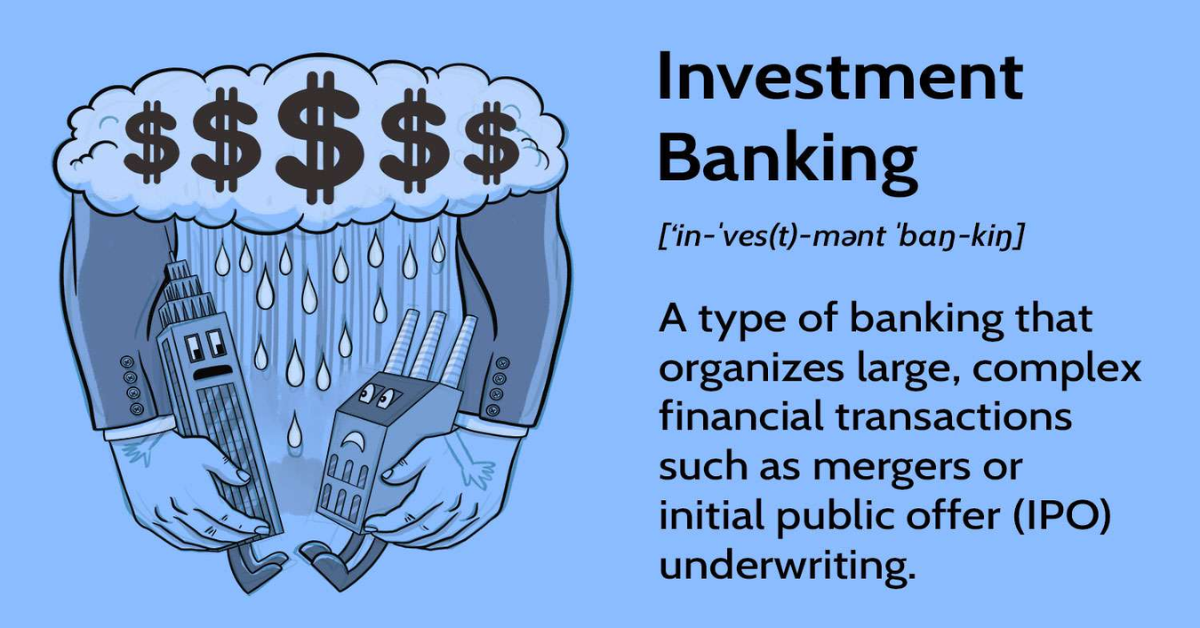Investment banking is a cornerstone of the global financial system, playing a crucial role in capital formation, mergers and acquisitions, and advisory services. This dynamic field attracts top talent and drives economic growth by connecting capital with opportunities. In this blog, we will explore the essentials of investment banking, its key services, career paths, and its influence on the global economy.
What is Investment Banking?
Investment banking involves financial advisory services and capital raising activities for governments, corporations, and institutions. It bridges the gap between investors seeking opportunities and entities needing funds to grow and expand. Investment banks provide expertise in areas such as mergers and acquisitions (M&A), initial public offerings (IPOs), and asset management.
Key Roles in Investment Banking
Investment banking is structured into several critical roles, each focusing on a specific aspect of the financial ecosystem:
1. Corporate Finance
Corporate finance teams advise companies on financial strategies, including capital structure optimization, fundraising, and strategic transactions like M&A.
2. Mergers and Acquisitions (M&A)
M&A teams specialize in facilitating the buying, selling, or merging of companies. Their responsibilities include:
- Conducting valuations and due diligence
- Negotiating deal terms
- Ensuring compliance with regulatory requirements
3. Capital Markets
Capital markets teams focus on raising funds for clients by issuing stocks or bonds. They assist with IPOs, secondary offerings, and debt issuance.
4. Sales and Trading
Sales and trading professionals buy and sell securities on behalf of clients and the bank itself. They manage market risks and ensure liquidity.

5. Asset Management
Asset management teams oversee investments for clients, including individuals, corporations, and institutional investors. They provide portfolio management and investment strategy guidance.
6. Research and Analysis
Research analysts provide insights into market trends, industries, and specific companies. Their reports guide investment decisions for clients and internal teams.
Services Offered by Investment Banks
Investment banks offer a wide range of services tailored to the needs of their clients. These include:
1. Capital Raising
Investment banks help companies access capital through equity or debt markets. They structure deals, set pricing, and ensure compliance with market regulations.
2. M&A Advisory
As trusted advisors, investment banks guide clients through the complexities of mergers, acquisitions, and divestitures. Their expertise ensures optimal outcomes for all parties involved.
3. Underwriting
Underwriting involves taking on the financial risk of issuing securities. Investment banks guarantee the sale of stocks or bonds, ensuring clients receive the funds they need.
4. Restructuring Services
Restructuring teams assist companies facing financial distress by advising on debt renegotiation, asset sales, or bankruptcy proceedings.
5. Risk Management
Investment banks provide risk management solutions, including hedging strategies and derivatives trading, to protect clients from market volatility.
The Importance of Investment Banking in the Global Economy
Investment banking drives economic growth by:
- Facilitating capital formation for businesses and governments
- Enabling mergers and acquisitions that create synergies and efficiencies
- Supporting infrastructure development through funding solutions
Investment banks also play a pivotal role in stabilizing financial markets by providing liquidity and managing systemic risks.
Career Opportunities in Investment Banking
A career in investment banking offers immense potential for growth and financial rewards. Common career paths include:

1. Analyst
Entry-level analysts focus on financial modeling, research, and preparing client presentations. This role requires strong analytical and technical skills.
2. Associate
Associates oversee analysts, manage client interactions, and assist with deal execution. They often serve as the link between junior and senior team members.
3. Vice President (VP)
VPs lead deal teams, develop client relationships, and ensure project deliverables meet expectations. They have significant responsibilities in transaction management.
4. Director/Managing Director
At the senior-most levels, directors and managing directors focus on business development, high-level client advisory, and deal origination.
5. Specialized Roles
Professionals can specialize in areas like risk management, equity research, or private equity, depending on their interests and expertise.
Challenges in Investment Banking
While investment banking is lucrative, it comes with challenges such as:
- Long Hours: Demanding schedules and tight deadlines are common in this field.
- High Pressure: Managing large transactions and client expectations can be stressful.
- Regulatory Compliance: Navigating complex legal and regulatory frameworks requires meticulous attention to detail.
- Market Volatility: Fluctuating market conditions can impact deal flow and valuations.
The Future of Investment Banking
The investment banking industry is evolving, driven by technology and changing market dynamics. Key trends shaping its future include:
1. Digital Transformation
Technology is revolutionizing investment banking through automation, data analytics, and artificial intelligence (AI). These innovations enhance efficiency and decision-making.
2. Sustainable Finance
There is a growing emphasis on environmental, social, and governance (ESG) factors in investment decisions. Sustainable finance products, such as green bonds, are gaining traction.
3. Globalization
Investment banks are expanding their global footprint, tapping into emerging markets for growth opportunities.
4. Decentralized Finance (DeFi)
The rise of blockchain and DeFi technologies is reshaping traditional banking models, offering decentralized solutions for capital raising and asset management.
5. Focus on Diversity and Inclusion
The industry is prioritizing diversity and inclusion to foster innovation and better serve diverse client bases.
How to Break into Investment Banking
If you’re interested in a career in investment banking, here are steps to get started:
- Educational Background: A degree in finance, economics, or business is typically required. MBA or CFA certifications can enhance your qualifications.
- Internships: Gaining hands-on experience through internships is crucial for building industry knowledge and networks.
- Networking: Connect with professionals in the field through events, LinkedIn, or alumni networks.
- Skill Development: Develop strong analytical, communication, and technical skills, including proficiency in financial modeling and Excel.
- Job Applications: Target entry-level analyst roles at investment banks to start your career.
Conclusion
Investment banking is a dynamic and influential industry that plays a vital role in the global economy. From raising capital to advising on transformative transactions, investment banks drive innovation and growth. While the path to a career in investment banking is challenging, it offers unparalleled opportunities for personal and professional development. With the right skills and determination, you can make a significant impact in this exciting field.
